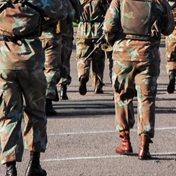
Under the apartheid regime, surveillance of all sectors of society was a common occurrence.
Fast-forward to more than two decades later – under a Constitution that promotes freedom of expression and privacy and limits the powers of the security agencies – and journalists in South Africa still find themselves being targeted by state spies.
According to a report released on Wednesday by the Right2Know Campaign, this seems to be especially true for journalists who have uncovered corruption, state capture, and abuse of power and in-fighting in agencies like the National Prosecuting Authority, the State Security Agency, the Crime Intelligence division of the police, and the Hawks.
The report, titled Spooked: Surveillance on Journalists in South Africa, exposed how journalists had in recent times come under targeted surveillance due to their exposés on high-profile politicians and government officials.
Right2Know campaign communicator Busi Mtabane said this latest report was “a contribution to a growing evidence of systemic surveillance abuses that have been uncovered in South Africa”.
Mtabane said her organisation was well aware that surveillance in South Africa affected all members of society “including whistle-blowers and activists, however, it would appear that journalists in South Africa have been a particular target for state spying, and more recently, even private-sector spying”.
This report looked at a range of case studies of surveillance against journalists to unpack what happened and how it happened, but it paid significant attention to amaBhungane’s centre for investigative journalism director, Sam Sole, and how he was spied on by the National Intelligence Agency (now the State Security Agency).
amaBhungane launched a court case after learning that Sole – who was instrumental in reporting on the corruption investigation against former president Jacob Zuma – had been spied on by the National Intelligence Agency for months, with government agents listening in on his confidential discussions with sources, as well as all of his personal calls with friends and loved ones.
The organisation argued that South Africa’s main surveillance law, Rica – which declares that citizens must link their SIM card, landline and internet account to their identity so that any communications from that SIM card or account can be traced back to them – had flaws that needed to be amended.
The main constitutional flaws raised in the amaBhungane case are:
• The person targeted for surveillance is never informed of the warrant to intercept their communications – even after the interception has ended and any investigation has been concluded
• Rica requires that private companies must store a lot of information about who users are and who they communicate with, but it does not provide for any oversight mechanisms.
• Rica is silent about what procedures officials should follow when examining, copying, sharing, and storing the intercepted data. When intercepted data is not relevant to an investigation, there is no prescribed procedure for it to be destroyed.
• Rica does not recognise the need for extra protections for people who have a special legal duty to protect the confidentiality of people they speak to, such as lawyers and journalists.
• The oversight system created by the Rica judge is not sufficient – in particular the process should include a “public advocate”, who should represent the interests of people who have been targeted for surveillance, and to test the reasons for interception which police and intelligence services provide to the Rica judge.
• Rica does not regulate the state’s “bulk interception” programmes; this refers to mass surveillance practices which involve collecting and analysing massive flows of data of large groups of people, rather than specific individuals who are under investigation for a serious crime.
In the report Sole says “the rule of thumb is that electronic communications are not safe”.
“It’s the structure of many intelligence services that while they claim to be protecting the interests of the country, historically and institutionally they’re often there to protect the king, or whatever the semi-democratic substitute may be.”
Another high-profile incident of surveillance detailed in the report is the spying on author of The President’s Keepers, Jacques Pauw, by state security agencies after he exposed a network of corruption and abuse of power surrounding Zuma.
Pauw exposes three key law enforcement agencies: the South African Revenue Service, the Hawks and the Crime Intelligence divisions of the police, and the State Security Agency as being in cahoots to the corruption and the abuse of power prevalent under Zuma’s administration.
In May, City Press reported that it had transcripts and recordings of a phone call between Jacques Pauw and Setlhomamaru Dintwe, the inspector-general of intelligence. On the transcript Pauw is referred to as “Target”.
“I cannot do my job as a journalist if my phone and my emails are being monitored. I cannot speak to sources, I can’t accept any material, I cannot do anything,” Pauw is quoted as saying in the report.
Other journalists reported to have been under surveillance are Mzilikazi wa Afrika and Stephan Hofstatter after they investigated major corruption scandals in the South African Police Service and the police’s Crime Intelligence Division in 2010 and later “had their phones tapped”.
The Right2Know report suggests that reforms to Rica should be implemented to afford journalists their right to freedom of speech.
“It is clear that South Africa’s surveillance law, Rica, has failed in several ways to protect journalists’ communications – along with the communications of the general public. In April 2016, Right2Know tabled a set of demands for surveillance reform with the department of justice and constitutional development that was co-signed by 40 civil society organisations. Several of these demands are of special importance to addressing the weaknesses in Rica that have put the journalists in this publication at risk,” said the organisation.




 Publications
Publications
 Partners
Partners








